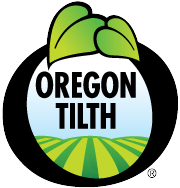OVERVIEW
The organic sector has grown over 35 percent between 2009-2013. And while there has been a steady progression in the marketplace, organic production continues to lag behind the increasing demand for organic products. Whether enhancing support systems for beginning farmers or developing partnerships between growers and processors, more organic farmland strengthens sustainability of our food system and economy.
The Challenge
We all know that the core of any marketplace is supply and demand. Unfortunately, certified organic farmland makes up less than two percent of total agricultural acreage in the United States. That number seems near impossible when considering organic market data; over 10 percent of fruits and vegetables sold are certified organic and eight out of ten families report purchasing organic products regularly.
It’s easy to get caught up in statistics, especially when discussing economic trends in the marketplace. But while organic has continued to move from fringe to mainstream, our support for growing organic beyond retail sales needs help. Many beginning farmers face the challenge of trying to get loans for $50,000 to $80,000 to start their business without assets or access to land. Conventional growers looking to transition are also challenged by increased costs and decreased yields during the three-year transition period when they’ve adopted organic practices, but land use history prevents access to organic market premiums.
Oregon Tilth understands the marketplace is an important driver for change. We hear from members and consumers that supporting organically-grown practices is not just about public health or natural resources conservation. It’s also about creating economic opportunities for the hardworking people putting our food system squarely on their backs to protect our future.
The Opportunity
Our job is to build bridges between growers, processors and consumers. Oregon Tilth Certified Organic has been working with farmers and food processors to improve connections between organic advocates. Whether redesigning our Find Organics tool to co-hosting Organicology, we’re always on the lookout for opportunities to bring all sides of industry together.
We are committed to studying gaps in organic supplies. Our goal is to use market analysis to identify openings for new and transitioning growers. In addition, we plan to bring wholesalers and growers together to create partner-led strategies to improve access to high-demand organic products. This includes focusing on infrastructure gaps in regional food systems to craft strategies for investing in and supporting the expansion of organic production. Transition is one of our core approaches to increase organic supplies, extend economic benefits to rural communities and conserve natural resources.
Oregon Tilth continues to work on practical policies that increase public investment in organic production to protect people and planet, together. But we also believe that leveraging the power of the marketplace can and will accelerate growth of organic agriculture.
